
Find Help
More Items From Ergsy search
-
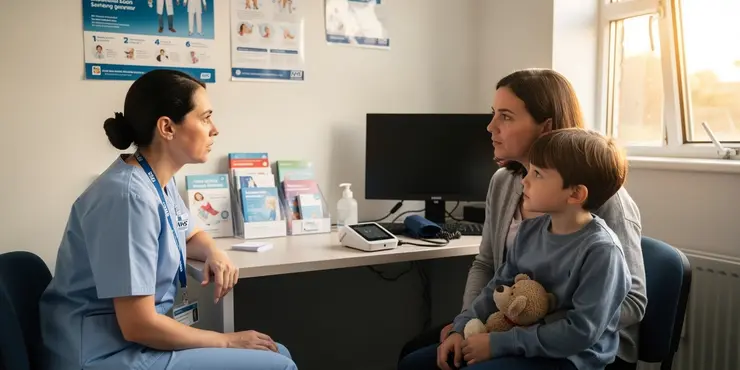
Are measles outbreaks common in the UK?
Relevance: 100%
-

Why are measles outbreaks still occurring?
Relevance: 97%
-
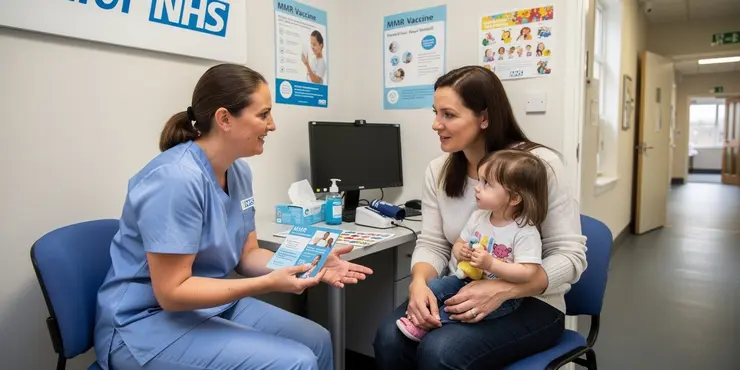
How can measles outbreaks be prevented?
Relevance: 95%
-
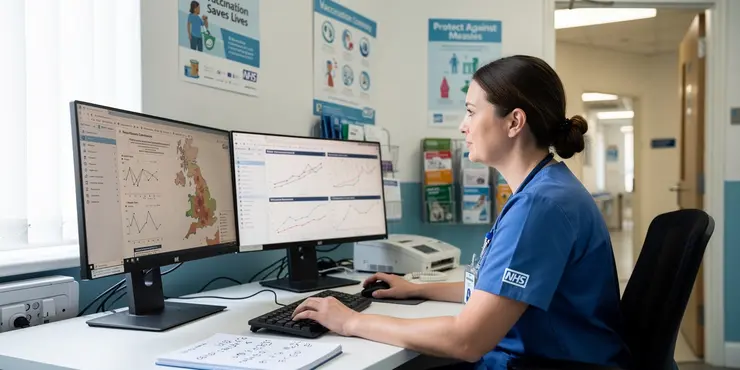
How does the UK monitor measles outbreaks?
Relevance: 93%
-
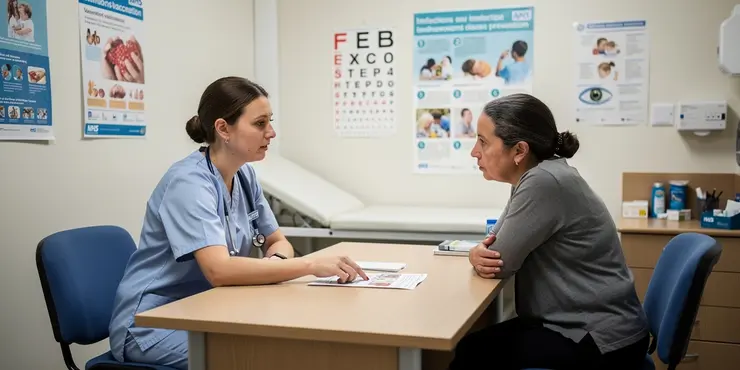
What should you do during a measles outbreak?
Relevance: 88%
-
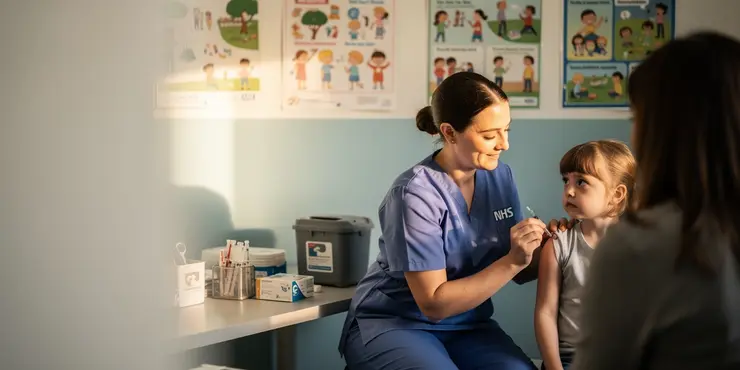
Measles
Relevance: 75%
-
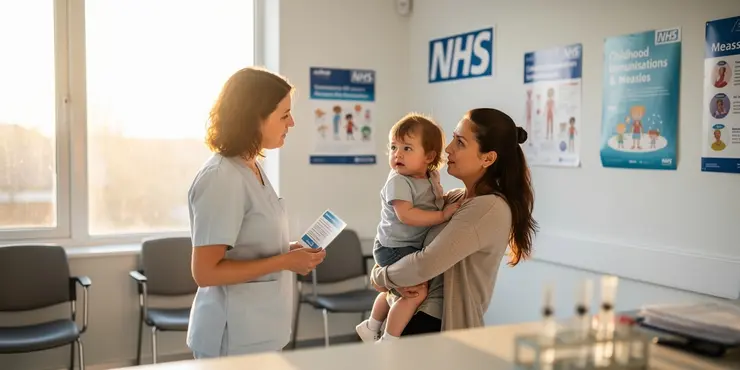
How contagious is measles?
Relevance: 72%
-
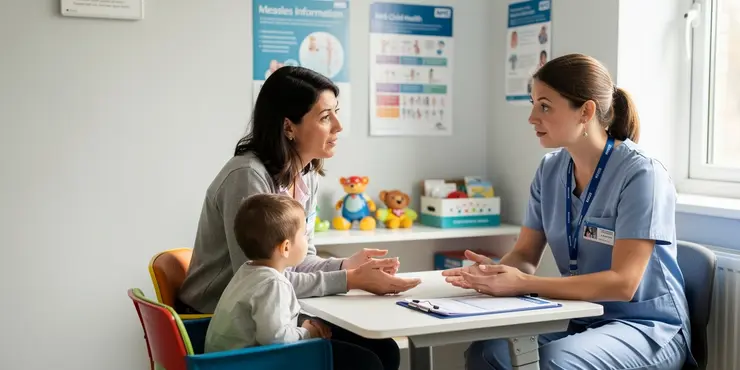
Is there a treatment for measles?
Relevance: 70%
-
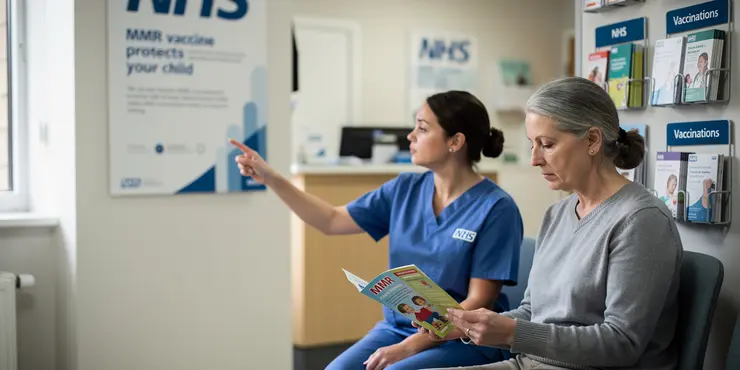
Are measles cases rising in the UK?
Relevance: 70%
-

What is measles?
Relevance: 68%
-
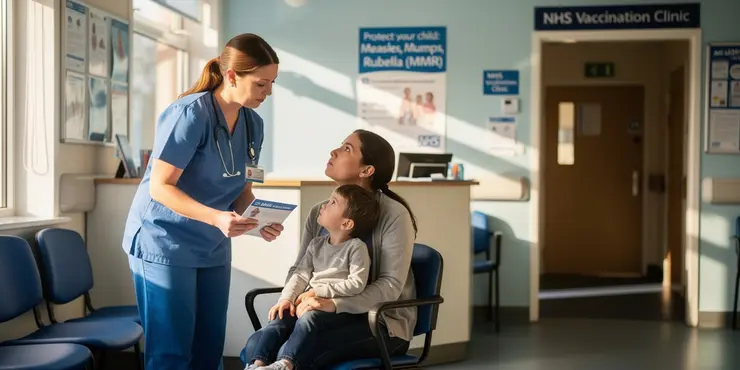
Are measles cases currently rising in the UK?
Relevance: 68%
-
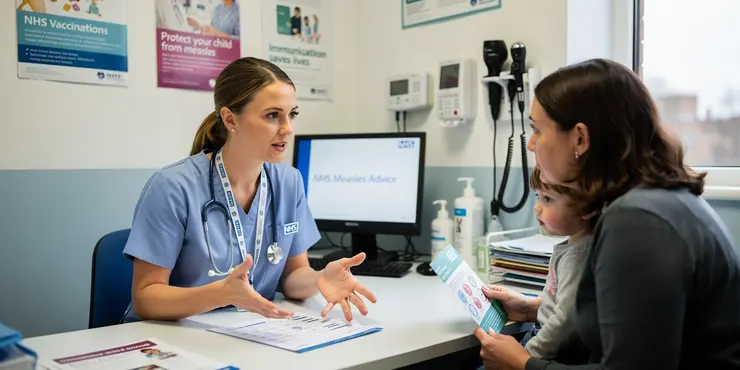
How is measles spread?
Relevance: 68%
-
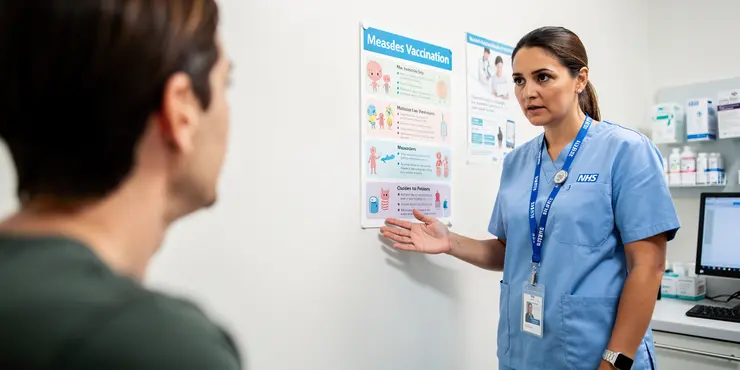
Are measles more common outside of the UK?
Relevance: 68%
-
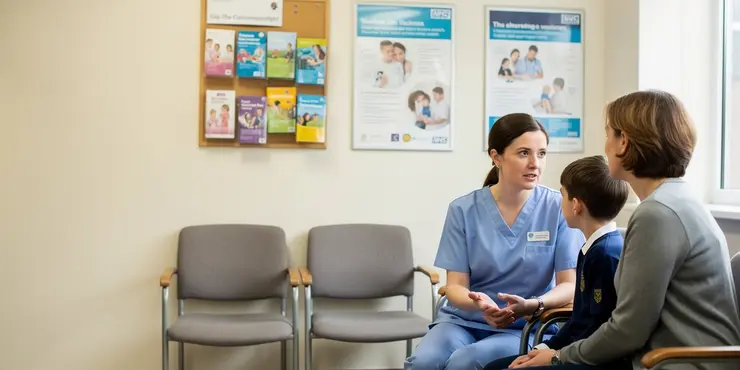
How can measles be prevented?
Relevance: 67%
-
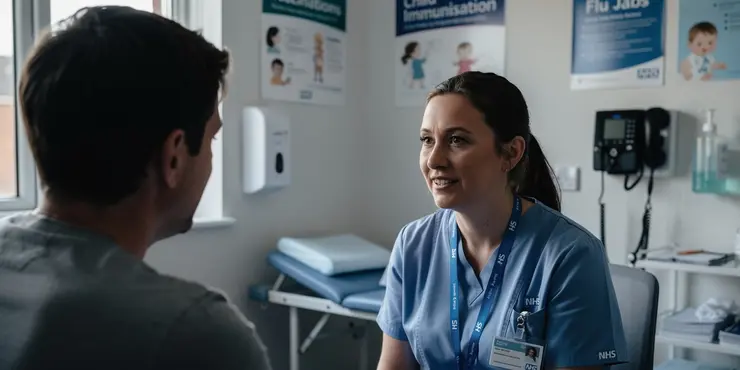
Why is measles less common in the UK?
Relevance: 67%
-
Is there a treatment for measles?
Relevance: 67%
-
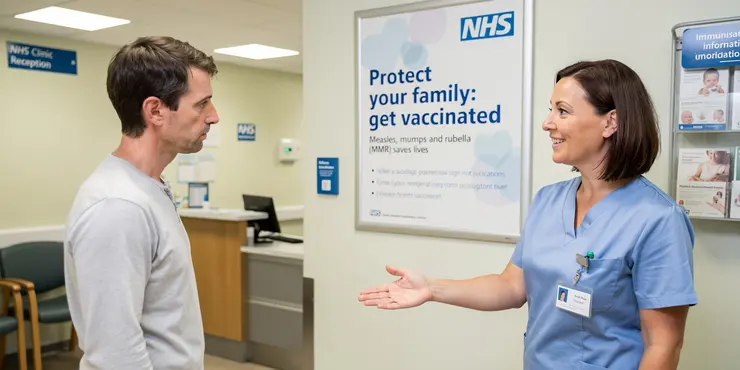
What is causing the rise in measles cases in the UK?
Relevance: 66%
-
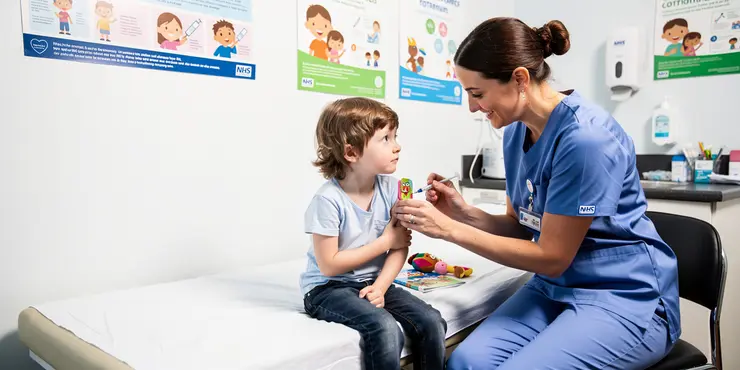
Which countries have higher rates of measles?
Relevance: 66%
-

How is measles transmitted?
Relevance: 66%
-
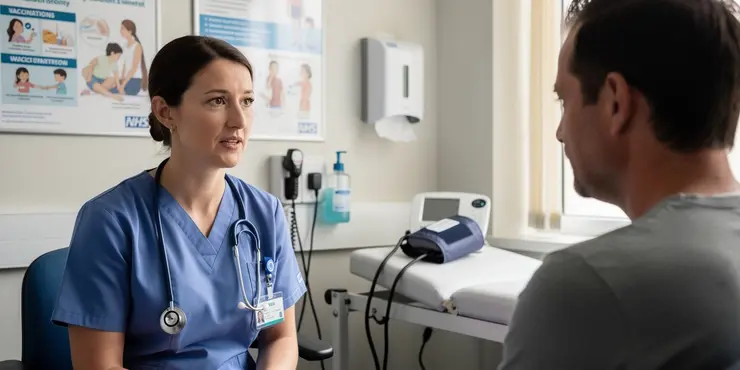
How is measles transmitted?
Relevance: 65%
-
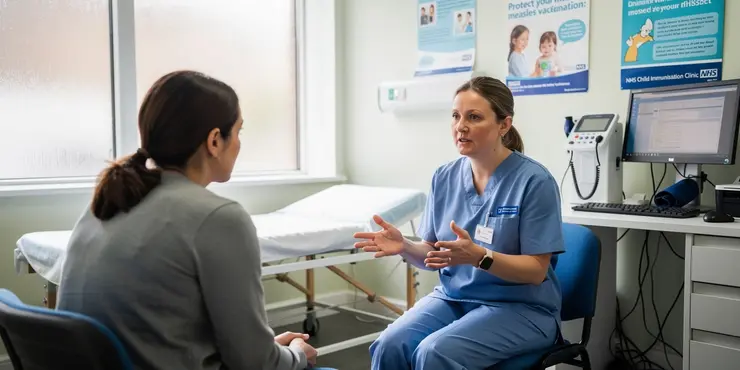
Can measles be serious?
Relevance: 65%
-
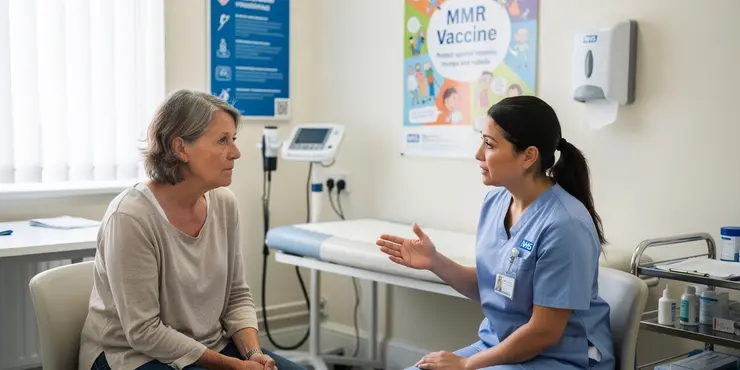
Can adults get measles?
Relevance: 65%
-
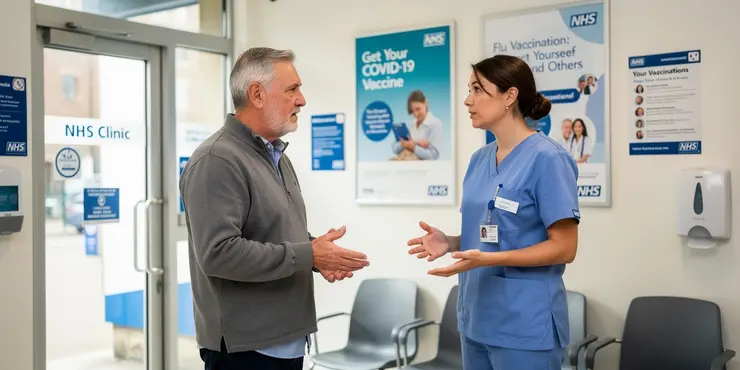
Are adults in the UK at risk from measles?
Relevance: 64%
-

Is it necessary to get a measles vaccine before travelling?
Relevance: 64%
-

How does vaccination affect measles rates?
Relevance: 63%
-
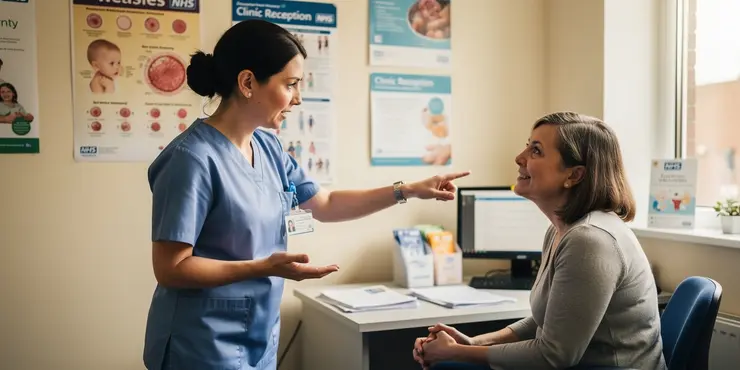
What are the symptoms of measles?
Relevance: 63%
-
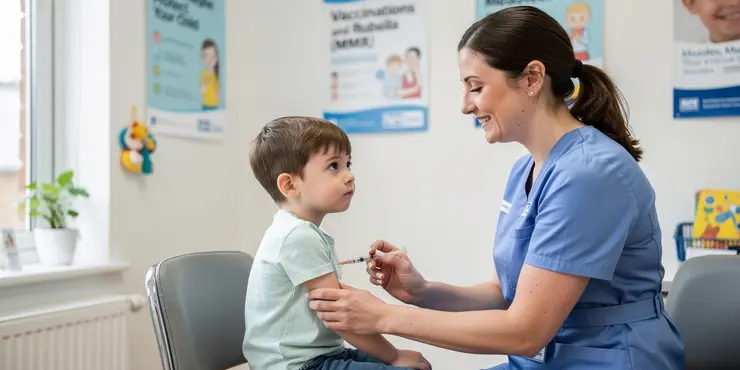
What is herd immunity and how does it relate to measles?
Relevance: 62%
-
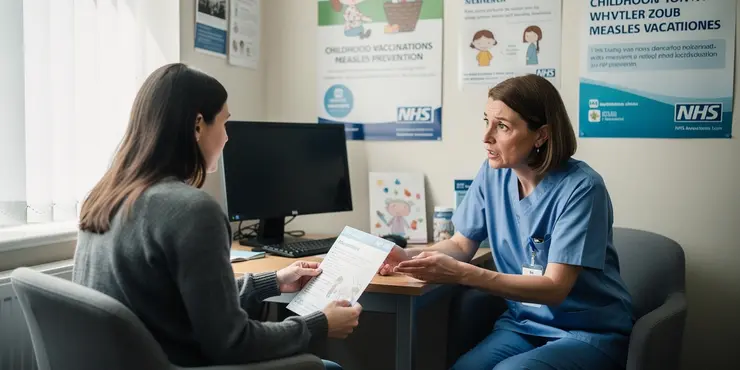
Is there a risk of global spread if measles cases rise in the UK?
Relevance: 62%
-
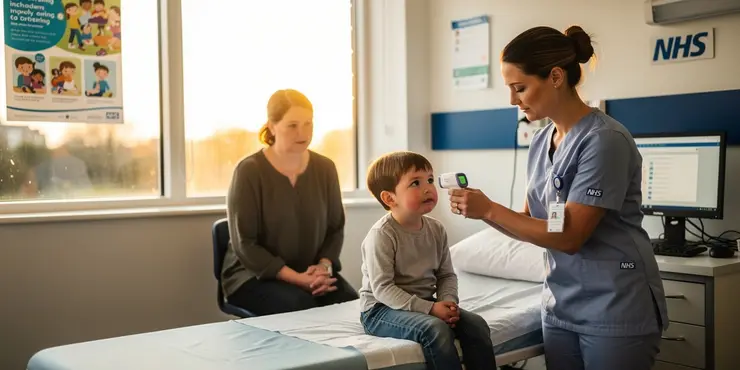
What are the symptoms of measles?
Relevance: 60%
-
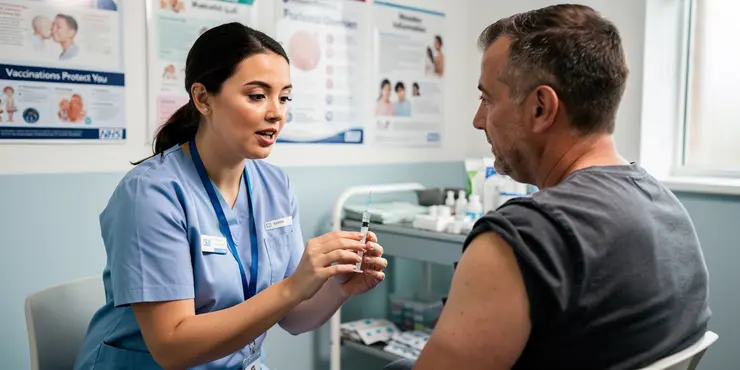
Can the measles vaccine be given to adults?
Relevance: 59%
-
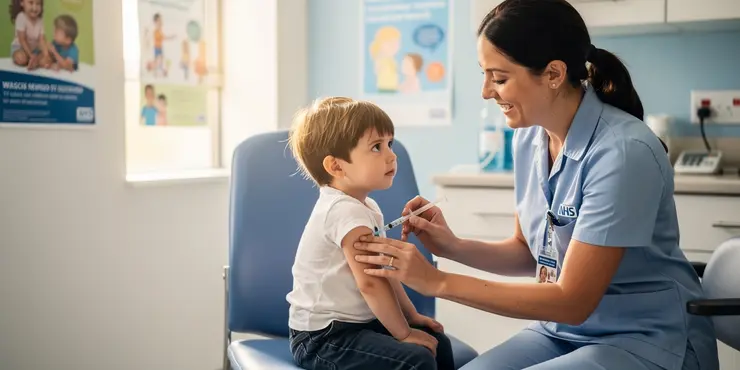
What is the current measles vaccination coverage in the UK?
Relevance: 59%
-
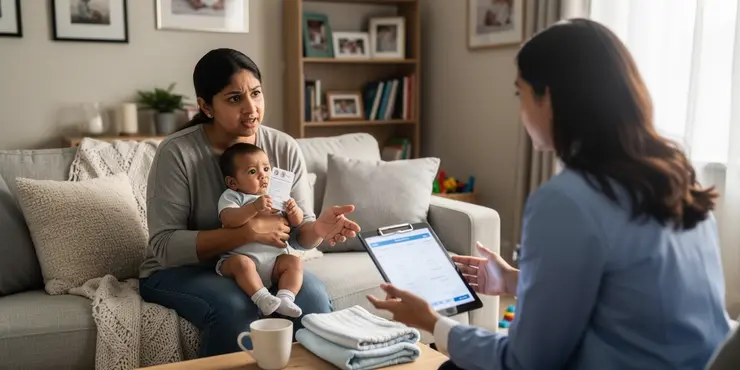
Who is most at risk from measles?
Relevance: 59%
-
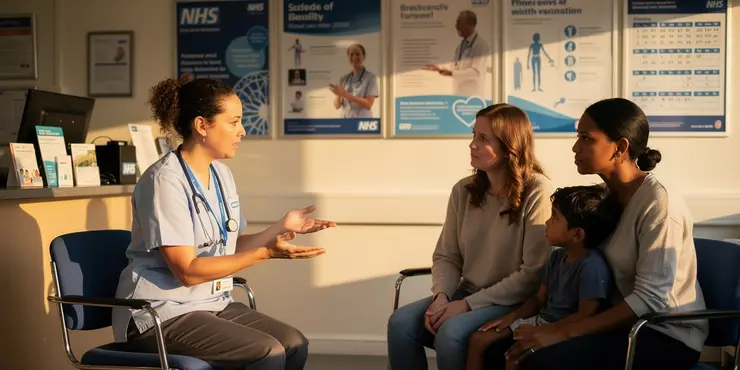
How long is a person with measles contagious?
Relevance: 57%
-
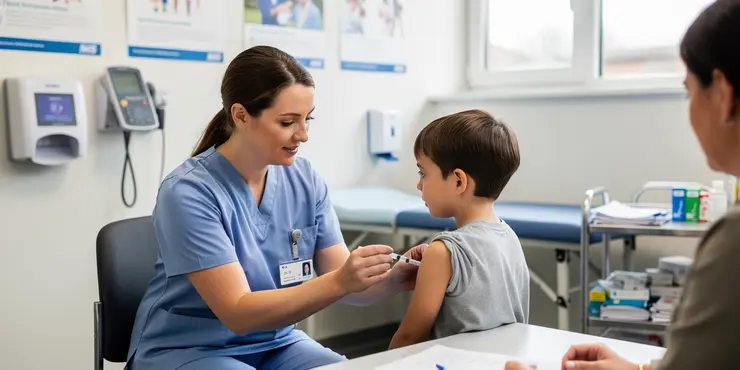
Can you get measles more than once?
Relevance: 57%
-

Can measles cause complications?
Relevance: 56%
-
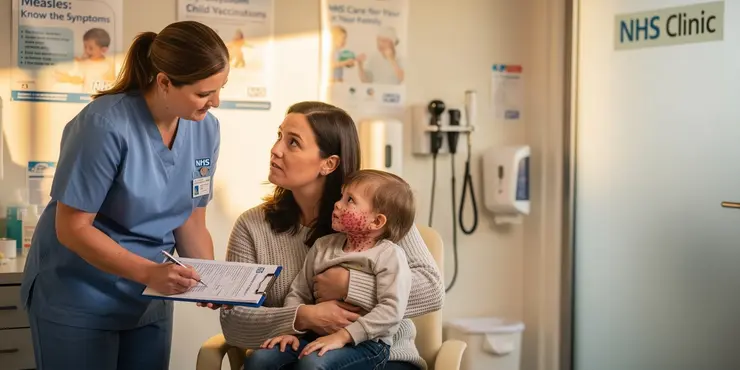
Can measles be treated?
Relevance: 56%
-
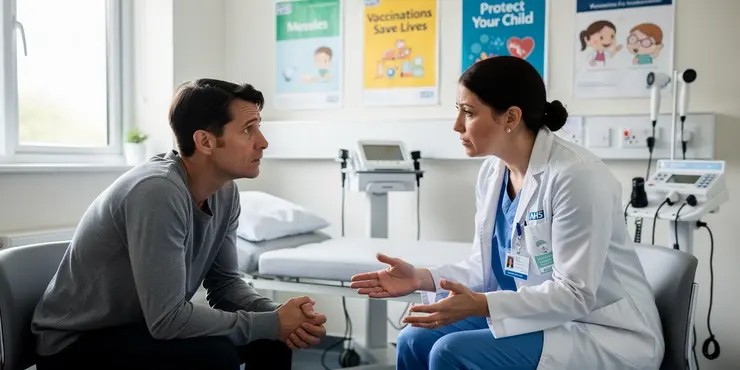
What complications can arise from measles?
Relevance: 56%
-
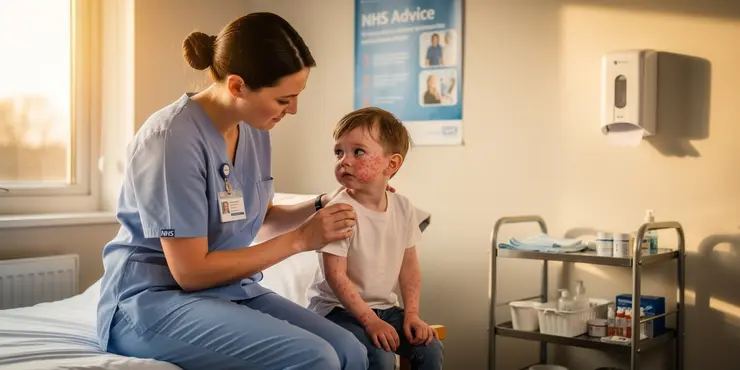
What are the symptoms of measles?
Relevance: 55%
-

Is Rubella the same as measles?
Relevance: 55%
-
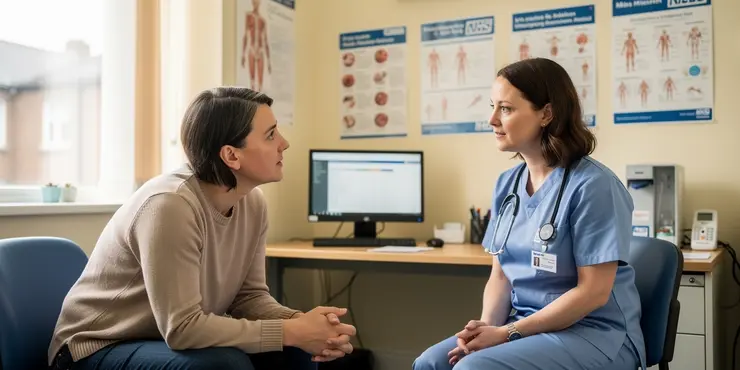
What should I do if I suspect I have measles?
Relevance: 55%
Why Are Measles Outbreaks Still Occurring?
Introduction
Measles is a highly contagious viral disease that remains a major health concern, even though a safe and effective vaccine is available. Despite significant progress made towards decreasing its prevalence, measles outbreaks are still occurring globally, including in the UK. Understanding the reasons behind these outbreaks is crucial for public health efforts to eradicate the disease.Vaccine Hesitancy
One of the primary reasons for ongoing measles outbreaks is vaccine hesitancy. Some individuals feel reluctant or refuse to vaccinate themselves or their children due to misinformation or distrust in vaccines. This hesitation can be attributed to misconceptions about vaccine safety, often fueled by misinformation spread through social media and other platforms. In particular, the discredited hypothesis linking the MMR (measles, mumps, rubella) vaccine to autism has contributed to declining vaccination rates.Inadequate Vaccination Coverage
For measles, achieving herd immunity requires at least 95% vaccine coverage in the population. However, in some UK areas, the vaccination rates have fallen below this threshold, resulting in susceptible populations who are not adequately protected. When vaccination coverage drops, the likelihood of outbreaks increases as the virus can spread more easily among unvaccinated individuals.Global Travel and Importation of Cases
The UK is a global travel hub, and imported measles cases contribute to outbreaks. Travelers from countries where measles is still prevalent can introduce the virus into communities with low vaccination coverage. These imported cases can quickly ignite local outbreaks, highlighting the necessity for comprehensive vaccination strategies both domestically and internationally.Public Health Strategies
To combat measles outbreaks, the UK needs to prioritize public health strategies that address vaccine hesitancy and improve vaccination coverage. Public health campaigns must focus on educating the public about vaccine safety and efficacy while countering misinformation. Additionally, coordinated efforts with international health organizations are essential to monitor and respond to measles threats effectively.Conclusion
Continued measles outbreaks in the UK underscore the importance of maintaining high vaccination rates and addressing vaccine hesitancy. By leveraging effective public health strategies and international cooperation, the UK can move closer to eradicating measles and prevent further outbreaks.Why Do We Still Have Measles Outbreaks?
Introduction
Measles is a virus that makes people very sick. It spreads easily from one person to another. There is a shot (vaccine) that stops measles, but people still get sick with it. This happens even in countries like the UK. We need to know why these outbreaks happen so we can stop them.Not Getting Vaccinated
One big reason people still get measles is because some choose not to get the vaccine. This can be due to wrong information or fear of vaccines. Some people have heard things about the MMR vaccine (this is for measles, mumps, and rubella) that aren't true, like it causing autism, which has been proven wrong. But these stories make some people worried and they decide not to have the vaccine.Low Vaccination Rates
To protect everyone from measles, 95 out of 100 people need to get the vaccine. In some parts of the UK, not enough people are getting vaccinated. This means that measles can spread quickly among people who aren't protected.Travel Brings Measles
Lots of people visit the UK from other countries. Some of these places still have many cases of measles. Visitors can bring measles with them, and if local people are not vaccinated, the disease can spread. This happens because the UK does not have enough vaccinated people to stop it.Stopping Measles
To stop measles, the UK needs to get more people vaccinated. We need to teach everyone that vaccines are safe and good. Also, health workers need to work with other countries to watch out for measles and stop it from spreading.Conclusion
Measles outbreaks happen when not enough people get vaccinated. To stop them, we need to make sure more people have the vaccine and understand its importance. By working together with other countries, the UK can help end measles for good.Frequently Asked Questions
What causes measles outbreaks?
Measles outbreaks are usually caused by a drop in vaccination rates, which leads to a larger number of people being susceptible to the virus.
Is measles a serious illness?
Yes, measles is a highly contagious viral illness that can lead to serious complications, especially in young children and those with weakened immune systems.
Why has there been a decrease in measles vaccination rates?
Vaccination rates might decrease due to vaccine misinformation, access issues, or complacency, as people may underestimate the risk of measles when it's no longer common.
How effective is the measles vaccine?
The MMR vaccine, which protects against measles, mumps, and rubella, is about 97% effective after two doses.
Can adults get measles as well?
Yes, adults who are not immune can get measles, particularly if they have not been vaccinated or have not previously had the disease.
Who is most at risk during a measles outbreak?
Unvaccinated individuals, young children, and people with compromised immune systems are most at risk during an outbreak.
What can be done to prevent measles outbreaks?
Increasing vaccination coverage is key to preventing measles outbreaks. Public health initiatives aim to educate and facilitate access to the MMR vaccine.
Are measles outbreaks common in the UK?
Measles outbreaks can occur in the UK, particularly when vaccination rates fall below the recommended threshold needed for herd immunity.
What are the symptoms of measles?
Symptoms of measles include high fever, cough, runny nose, inflamed eyes, and a red rash that usually starts on the face and spreads.
How does measles spread?
Measles spreads through respiratory droplets from coughing or sneezing. It's highly contagious and can remain infectious for several hours in the air.
Why is herd immunity important for measles?
Herd immunity protects those who cannot be vaccinated, such as infants or those with certain medical conditions, by reducing the overall spread of the virus.
How many doses of the MMR vaccine are recommended in the UK?
In the UK, two doses of the MMR vaccine are recommended, typically given at around 1 year of age and at 3 years and 4 months of age.
Can the measles vaccine cause the disease itself?
No, the measles vaccine is made from a live attenuated virus that cannot cause the disease in healthy individuals.
What role does vaccine misinformation play in measles outbreaks?
Misinformation can lead to vaccine hesitancy, resulting in lower vaccination rates and increased vulnerability to outbreaks.
What is the public health response to a measles outbreak?
The response typically includes identifying and isolating cases, informing the public, and increasing vaccination efforts to stop further spread.
Why do measles spread?
Measles spreads when not enough people get their vaccine shots. This means more people can catch the virus.
Is measles a bad illness?
Measles is a sickness. It can make you feel very sick. Some people can get more sick than others. It's important to see a doctor if you think you have measles.
You can get a vaccine. A vaccine is like a shield. It helps keep you safe from getting sick.
If you need help reading or understanding, you can:
- Ask someone to read it with you.
- Use an app that reads out loud.
- Break the text into smaller parts.
Yes, measles is a sickness that spreads really easily. It is caused by a virus. It can make you very sick, especially if you are a young child or if your body is not strong enough to fight off germs.
If you want help to understand more, you can use pictures or videos. Talking with an adult you trust can also help.
Why are fewer kids getting the measles vaccine?
Some parents are not having their kids get the measles shot. Here are some reasons why:
- Some people are worried about the vaccine.
- They might not know how important the shot is.
- Some places have a hard time getting the vaccine.
If you have questions, talking to a doctor or nurse can help. They can explain why vaccines are good and keep you safe.
Fewer people might get vaccinated because of wrong information about vaccines, problems getting the vaccine, or because they think measles is not a big deal anymore. Tools and techniques like speaking with a doctor, using trustworthy websites, or community events can help people learn and understand better.
How well does the measles shot work?
The measles shot is very good at stopping measles. Most people who get the shot don’t get sick if they are around someone with measles.
If you get two shots, it works almost all the time. This means you probably won't get measles.
A few people might still get sick, but it’s very rare.
If you need help reading or understanding, ask someone to read it with you. Drawing pictures or using apps to hear the words might help too.
The MMR shot stops you from getting measles, mumps, and rubella. It works really well. It protects 97 out of 100 people after two shots.
Can grown-ups catch measles too?
Yes, grown-ups who have not had their shots can get measles. They can also get it if they never had measles before.
If reading is hard, you can use helpful tools like text-to-speech on your phone or computer. These tools can read words out loud to you.
Who can get sick easily when there is a measles outbreak?
People without vaccines, kids, and those who are sick or weak can get sick more easily during an outbreak.
How can we stop measles from spreading?
Measles is a sickness that can spread quickly. Here are some ways to stop it:
- Get the Vaccine: A vaccine is a special shot. It helps keep you safe from getting measles. Make sure you and your family get the shot.
- Wash Your Hands: Wash your hands often with soap and water. It helps stop germs from spreading.
- Stay Home if Sick: If you feel sick, stay home. This stops the germs from spreading to other people.
- Tell a Grown-Up: If you see someone with a rash and fever, tell a grown-up. A doctor can help them get better.
These simple steps can help keep everyone healthy!
To stop measles from spreading, more people need to get the vaccine. Health groups work to teach people about the MMR vaccine and make it easy to get.
Do a lot of people get measles in the UK?
Sometimes measles spreads in the UK. This happens when not enough people get the measles vaccine. The vaccine helps protect everyone from getting sick.
To make reading easier, you can use tools like text-to-speech programs or audiobooks. Using pictures or simple videos can also help you understand better.
What happens when you have measles?
Measles can make you feel sick. Here are some things that might happen to your body:
- You might get a fever. This means your body feels very hot.
- You could start coughing a lot.
- Your nose might get runny, like when you have a cold.
- Your eyes might hurt from light. This is called being sensitive to light.
- Red spots might show up on your skin. These are called a rash.
If you think you have measles, it is important to see a doctor.
Tools like picture cards or apps with reading help can support understanding.
Signs that someone has measles are:
- A high temperature (fever)
- Coughing
- A runny nose
- Sore and red eyes
- A red rash on the face that spreads
Tip: If reading is hard, try listening to the information with a text-to-speech tool or have someone read it to you.
How does measles spread?
Measles is a sickness. It spreads when someone sick coughs or sneezes. Tiny germs come out of their mouth and nose. Other people can breathe in these germs and get sick too.
To stay safe, wash your hands often. If you feel sick, tell an adult. Use tissues or your elbow to cover your mouth when you cough or sneeze.
Support tools like picture books or videos can help you understand more about staying healthy.
Measles is a sickness that you can catch from tiny drops when someone coughs or sneezes. It spreads easily and can stay in the air for a few hours.
Why is herd immunity important for measles?
Herd immunity helps protect people from getting sick. It is important for stopping diseases like measles. When most people get a vaccine, the disease can't spread easily.
Measles is a disease that spreads quickly. If many people have the vaccine, even those who can't get it are safer.
Tools that help:
- Pictures or drawings of germs and vaccines
- Videos that explain how vaccines work
- Talking with a doctor or nurse about questions
Herd immunity helps keep everyone safe. It helps people who can't get vaccines, like babies or people who are sick. It does this by stopping the virus from spreading a lot.
How many times should you get the MMR vaccine in the UK?
The MMR vaccine helps protect you from measles, mumps, and rubella. It is important for staying healthy.
In the UK, it is recommended to get the MMR vaccine two times. This is also called having two doses.
If you need help remembering these doses, you can use a notebook or calendar to write down when you need them.
If you have any questions, ask a doctor or nurse. They can help you understand more about vaccines.
In the UK, kids should have 2 shots of the MMR vaccine. They get the first one when they are about 1 year old. They get the second one when they are 3 years and 4 months old.
Can the measles vaccine make you sick with measles?
No, the measles vaccine cannot give you measles. It is safe.
The vaccine helps protect you from getting measles, which is a sickness.
If you feel worried, talk to a doctor or nurse. They can help you understand more.
Using picture books or videos can also help explain vaccines better. It's okay to ask for help.
No, the measles vaccine is safe. It is made from a weak virus that cannot make healthy people sick.
How does wrong information about vaccines cause more people to get measles?
When people hear or read wrong things about vaccines, they might get scared and not want to get the vaccine. This can make more people catch diseases like measles.
Here are some tips to understand better:
- Ask a doctor if you have questions about vaccines.
- Read information from trusted places like hospitals or health websites.
- Use pictures or videos to help you understand how vaccines work.
Wrong information about vaccines can make people unsure about getting them. This can mean fewer people get vaccinated, which can make it easier for diseases to spread.
How do people stop measles from spreading?
If measles is spreading, there are things people can do to stop it.
- Get a measles shot: The shot helps protect you from getting sick.
- Stay home if you are sick: Don’t go to school or work so others don't get sick.
- Wash your hands often: This helps stop germs from spreading.
- Tell a doctor: They can help and give you advice.
If you need help reading, you can:
- Ask someone to read it with you.
- Use a computer program to read it out loud.
- Break it down into small parts and read one part at a time.
To stop the spread, we find people who are sick. We keep them away from others. We tell everyone what is happening. We give more vaccines to protect people.
Useful Links
This website offers general information and is not a substitute for professional advice.
Always seek guidance from qualified professionals.
If you have any medical concerns or need urgent help, contact a healthcare professional or emergency services immediately.
Some of this content was generated with AI assistance. We’ve done our best to keep it accurate, helpful, and human-friendly.
- Ergsy carfully checks the information in the videos we provide here.
- Videos shown by Youtube after a video has completed, have NOT been reviewed by ERGSY.
- To view, click the arrow in centre of video.
- Most of the videos you find here will have subtitles and/or closed captions available.
- You may need to turn these on, and choose your preferred language.
- Go to the video you'd like to watch.
- If closed captions (CC) are available, settings will be visible on the bottom right of the video player.
- To turn on Captions, click settings .
- To turn off Captions, click settings again.
More Items From Ergsy search
-

Are measles outbreaks common in the UK?
Relevance: 100%
-

Why are measles outbreaks still occurring?
Relevance: 97%
-

How can measles outbreaks be prevented?
Relevance: 95%
-

How does the UK monitor measles outbreaks?
Relevance: 93%
-

What should you do during a measles outbreak?
Relevance: 88%
-

Measles
Relevance: 75%
-

How contagious is measles?
Relevance: 72%
-

Is there a treatment for measles?
Relevance: 70%
-

Are measles cases rising in the UK?
Relevance: 70%
-

What is measles?
Relevance: 68%
-

Are measles cases currently rising in the UK?
Relevance: 68%
-

How is measles spread?
Relevance: 68%
-

Are measles more common outside of the UK?
Relevance: 68%
-

How can measles be prevented?
Relevance: 67%
-

Why is measles less common in the UK?
Relevance: 67%
-
Is there a treatment for measles?
Relevance: 67%
-

What is causing the rise in measles cases in the UK?
Relevance: 66%
-

Which countries have higher rates of measles?
Relevance: 66%
-

How is measles transmitted?
Relevance: 66%
-

How is measles transmitted?
Relevance: 65%
-

Can measles be serious?
Relevance: 65%
-

Can adults get measles?
Relevance: 65%
-

Are adults in the UK at risk from measles?
Relevance: 64%
-

Is it necessary to get a measles vaccine before travelling?
Relevance: 64%
-

How does vaccination affect measles rates?
Relevance: 63%
-

What are the symptoms of measles?
Relevance: 63%
-

What is herd immunity and how does it relate to measles?
Relevance: 62%
-

Is there a risk of global spread if measles cases rise in the UK?
Relevance: 62%
-

What are the symptoms of measles?
Relevance: 60%
-

Can the measles vaccine be given to adults?
Relevance: 59%
-

What is the current measles vaccination coverage in the UK?
Relevance: 59%
-

Who is most at risk from measles?
Relevance: 59%
-

How long is a person with measles contagious?
Relevance: 57%
-

Can you get measles more than once?
Relevance: 57%
-

Can measles cause complications?
Relevance: 56%
-

Can measles be treated?
Relevance: 56%
-

What complications can arise from measles?
Relevance: 56%
-

What are the symptoms of measles?
Relevance: 55%
-

Is Rubella the same as measles?
Relevance: 55%
-

What should I do if I suspect I have measles?
Relevance: 55%


